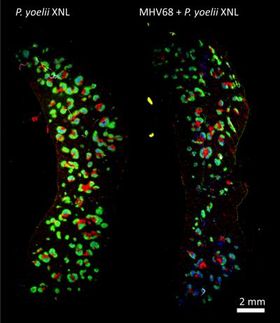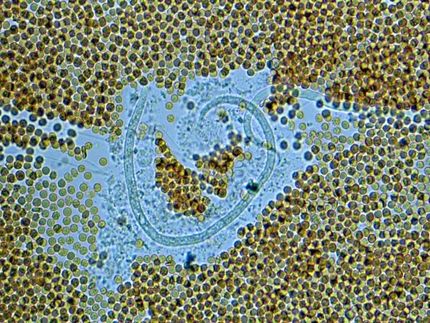Pharmocogenomics has not fulfilled its promise
Little research on the treatment of rare and orphan diseases has been conducted in developing countries
Advertisement
From 1997 to 2010, despite promises made by the international scientific community, pharmacogenomic research produced few studies focusing on rare, orphan and tropical diseases prevalent in developing countries. Catherine Olivier, bioethics research at the University of Montreal's School of Public Health, recently published these findings in the journal Global Public Health.
Pharmcogenomics is a field of scientific research that studies the interaction between the genomic information of individuals (or populations) and their responses to drugs. In addition to its promising potential for the emergence of personalized medicine, pharmacogenomics held the potential to contribute to the development and accessibility of treatments for rare and orphan diseases – including tropical infections – in developing countries.
In general, "it is recognized that the distribution of technology and research follows the so-called 90/10 ratio rule, that is, 90% of global funding for health research, including the development drugs, is invested to treat 10% of the world's population," Olivier explained. This inequality between rich and poor countries had led the United Nations (UN) to make the fight against HIV-AIDS, malaria, and neglected tropical diseases one of its eight Millennium Development Goals, adopted in September 2000 by the 189 UN member states.
More than 600 studies analyzed
To verify the extent to which pharmacogenomics research has addressed rare, orphan, and tropical diseases, Olivier identified the focus of studies published in this area from 1997 to 2010.
As a result, she identified 626 studies published in 171 different journals.
Each study was analyzed according to the type of disease it concerned, the origin of its authors, and the latter's affiliation with pharmaceutical companies, if any. "The information collected allowed us to draw a map showing current and historical trends in the development of pharmacogenomic research," Olivier said.
Few studies on rare diseases
Consequently, she found that from 1997 to 2003, there were 401 publications on pharmacogenomics identified in the PubMed database – the majority (67%) being published in a single journal, Pharmacogenetics. Then, from 2003 to 2010, the number of studies published doubled.
However, the apparent enthusiasm for this type of research seems to have been artificially inflated. Olivier noted that the percentage of non-original publications, including reviews, meta-analyses, and debates, increased from 15% in 1997 to 51% in 2010. "The number of original articles, that is, studies focusing on a new aspect of pharmacogenomics, began to decline after 2002," Olivier said. Moreover, during the period analyzed, nearly 23% of published studies in pharmacogenomics dealt with the area of oncology, followed by depression and psychological disorders (14.7%), and cardiovascular disorders (13.6%).
"Rare diseases, tropical infections, and maternal health, which should have benefited from pharmacogenomic research under the Millennium Development Goals, represented only 3.8% of published studies," Olivier explained.
Researchers uninterested
According to Olivier, it is also troubling that researchers from countries most likely to be interested in this area nevertheless conducted few studies on rare diseases and tropical infections. "Of the 65 publications from BRICS countries – Brazil, Russia, India, China, and South Africa – only two concerned rare diseases and tropical infections," Olivier said.
Yet, these diseases represented nearly half (45.5%) of the main causes of mortality in underdeveloped countries, and 15% in developing countries, according to 2008 data issued by the UN. "Unfortunately, our study indicates that we are far from fulfilling the promise to reduce health inequalities in the world, a promise which was made before the adoption of the Millennium Declaration," Olivier said.




























































